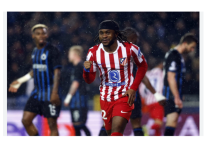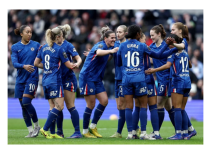In an industry where perfection is often packaged and sold, Kazeem Abimbola, better known as Jigan Babaoja, has flipped the script, proving that imperfection can be powerful.
What started as a childhood injury that altered his walk has become the very thing that sets him apart. Today, Jigan is more than a Nollywood actor or a skit-maker—he’s a movement. A walking, talking testament that resilience is louder than ridicule.
Mocked, Then Magnified
From classroom whispers to online trolls, Jigan has heard it all. By age 10, he had endured a lifetime’s worth of teasing. But instead of folding under pressure, he crafted armor out of every insult. He now laughs with the world—and often, at himself.
“If 80% of the world appreciates me, I don’t care about the 20%,” he once quipped, brushing off haters who label his comedy as “rubbish” or target his unique stride.
That unbothered confidence has built him a loyal following and turned body-shaming into branding. What others saw as “a flaw,” Jigan turned into his most marketable feature.
A Wound Rewritten as a Win
Jigan once believed a nurse’s mistake caused his leg condition. But with time, he’s reframed the narrative. Rather than dwell on blame, he thanks the woman—whom he affectionately calls “Mummy David”—for redirecting his destiny.
“If I were physically complete, I might have been ordinary,” he says, reflecting on the adversity that gave birth to his purpose.
It’s this raw honesty that resonates with millions who see their own struggles mirrored in his.
From Shame to Syllabus
He doesn’t just tell his story—he teaches it. Jigan challenges the status quo through skits, speeches, and bare-it-all posts (literally, on his 40th birthday!). He’s called on followers to “make me a case study” in thriving despite disability.
More personally, he’s raising his kids with unfiltered truths. When his daughter asked about his walk, he gave her power—not pity—arming her with pride to face any ridicule.
Two Realities, One Fight
Jigan’s journey isn’t just emotional—it’s geographical. During a U.S. trip, he was offered wheelchair assistance without shame. It felt like respect, he says. Back home in Nigeria, the story is different—where empathy is scarce and disability still draws unnecessary stares.
“Abroad, they see me as a special being. At home, I’m often treated like a mistake,” he noted.
But that hasn’t stopped him. If anything, it fuels his fire to reshape cultural perceptions of disability across the continent.
Why Jigan’s Story Matters
He’s Redefining Disability: Not as limitation, but as uniqueness, strength, and storytelling gold.
He’s Resilience in Real Time: Every meme, mock, and message only adds to his momentum.
He’s Raising a Generation: By showing his children—and the world—how to wear differently with dignity.
Final Word: Walk It Like You Own It
Jigan Babaoja didn’t just overcome body-shaming—he monetized it, branded it, and turned it into a global conversation. In a world obsessed with appearances, he reminds us that the loudest confidence often comes from the quietest pain. And sometimes, your limp isn’t a weakness—it’s your signature stride toward greatness.
































